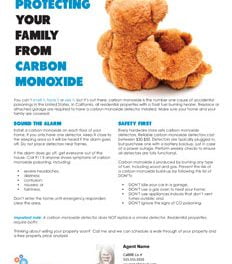Do you think the recent up-tick in prices is the result of a speculator-driven mini-bubble?
- Yes. (74%, 52 Votes)
- No. (26%, 18 Votes)
Total Voters: 70
Tangible investments, like real estate, carry a higher emotional investment than intangible investments, such as stocks, according to a recent Barclays Wealth and Investment Management report.
The report warns material trappings of tangible investments (i.e., “curb appeal” of a home or other real estate) can skew judgments, often causing a buyer to pay more than they otherwise would. Deemed the winner’s curse, the winning bidder (in our discussion, the buyer whose offer is accepted by a seller under auction-like conditions, feigned by the agent) who assigns the highest value to the property is also ensuring he has the least chance of later selling it for a profit. Not exactly an investor’s ideal.
first tuesday take
The winner’s curse, often associated with collectors’ items or treasure investments, is a phenomenon which also occurs in real estate. During the real estate Boom, buyer-occupants in pursuit of the American Dream were the accursed winners, giving into bidding frenzy and eventually stuck with over-priced (soon-to-be underwater) homes.
Today’s real estate speculators of the moment are a related breed of investors driven by animal spirits, moved by a collective burst of irrational exuberance due to the current up-tick in real estate volume (a repeat of the 2009-2010 tax credit stimulus bubble).
Approximately half of all home sales end up in the slippery hands of absentee buyers, who will sooner or later, as intended at time of purchase, turn around and drop them back on the market. This creates a perceived current “low inventory” situation, which then is misinterpreted as an increase in demand. In response, home prices momentarily rise in a mini-bubble, ready-made to pop the moment speculators realize their deals are changing hands without profit.
Related article:
For their own good, encourage investors to think long-term, say 15 years, more like buy-to-hold buyers, as the next several years will continue in a slow, prolonged and inflation-free recovery. With transaction costs taken into consideration a property value will likely take five to seven years to appreciate enough for the investment to be to return its original capital – nothing more. Best your buyer get a sound rate of return on the investment as monthly income in the interim.
Related article:
On a side note, Barclays, the author of the aforementioned study, has recently been making the rounds in the news due to their own kind of irrational investment strategies…
Related articles:
Re: In Investments, as in Life, Passion Can Cloud Judgment from the New York Times














